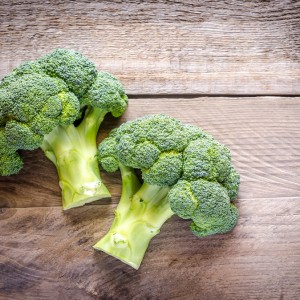 Crucial cancer-fighting mechanisms behind sulforaphane’s action have been found, suggesting this phytochemical, naturally present in food such as broccoli, could be developed into an advanced prostate cancer therapeutic drug.
Crucial cancer-fighting mechanisms behind sulforaphane’s action have been found, suggesting this phytochemical, naturally present in food such as broccoli, could be developed into an advanced prostate cancer therapeutic drug.
Sulforaphane is known to specifically kill cancer cells and may have an invaluable function for the treatment of metastasized forms of prostate cancer.
This new study, titled “SUV39H1/H3K9me3 attenuates sulforaphane-induced apoptotic signaling in PC3 prostate cancer cells” was published in the journal Oncogenesis by Oregon State University and the Texas A&M Health Science Center researchers.
“There’s significant evidence of the value of cruciferous vegetables in cancer prevention,” study’s lead author Emily Ho, professor and director of the Moore Family Center for Whole Grain Foods, Nutrition and Preventive Health in the OSU College of Public Health and Human Sciences, said in a news release. “However, this study is one of the first times we’ve shown how sulforaphane can affect a histone methylation and alter gene expression in metasticized prostate cancer cells. It begins a process that can help to re-express tumor suppressors, leading to the selective death of cancer cells and slowing disease progression”, she added.
The study’s results show that sulforaphane can have a therapeutic potential against late-stage, metastasized prostate cancer, since it can impact on essential metabolic processes. In fact, there is a current clinical trial testing the effects of sulforaphane supplements in patients who are at high risk of developing prostate cancer.
There have been previous studies that assessed the health impact of cruciferous vegetables, like broccoli, cauliflower, and cabbages, since these types of food contain sulforaphane.
In this study, the research team identified SUV39H1, an enzyme present in prostate cancer cells, as the element directly affected by sulforaphane. This opens up the possibility of using this particular enzyme as a future therapeutic target in prostate cancer treatment.

